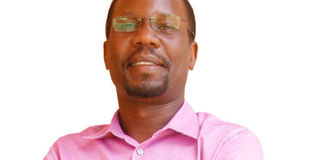Of government’s good move on oil and why zebras have stripes

If you have encountered zebras in the company of a little child, probably you have fielded this question: why do zebras have stripes?
You will draw a blank, or possibly say that the black-and-white stripes make zebras look beautiful. They probably do, but science has now provided an answer you should give confidently the next time and wow that little person.
The stripes — according to a new experiment reported on by Reuters news agency last week — prevent (by dazzling and therefore confusing) “fierce blood-sucking flies” from landing on zebras, biting and giving them terrible diseases such as trypanosomiasis.
Reported the news agency: “Researchers on Wednesday described experiments demonstrating that horse flies have a difficult time landing on zebras while easily landing on uniformly coloured horses. In one experiment, the researchers put cloth coats bearing striped patterns on horses and observed that fewer flies landed on them than when the same horses wore single-color coats.”
One of the researchers is quoted explaining: “We showed that horse flies approach zebras and uniformly coloured horses at similar rates but that they fail to land on zebras - or striped horse coats - because they fail to decelerate properly, and so fly past them or literally bump into them and bounce off.”
And did you know that no two zebras have the same stripe-pattern?
Talking of patterns, Senegal and Nigeria hold presidential elections this weekend. Will those elections produce a pattern where both incumbents lose or both win?
Nigeria votes this Saturday, having postponed the vote from a week ago at the eleventh hour. Senegal gives it a go this Sunday. In both countries, providing jobs for the multitudes of young people is a big question.
In Nigeria, incumbent Muhammadu Buhari will have to also persuade people that he can still finish off Boko Haram, having failed in the first term.
In Senegal, president Macky Sall, who has presided over big-ticket projects ranging from museums to train lines, will be hoping he earns a second term. But, as BBC reported, things may not be that smooth.
“These projects have no importance, it’s all politics,” the BBC quoted a boda rider commenting on the public works projects.
“What’s the point of building highways with tolls if young people don’t have work to pay for them?
“Before building highways, you have to industrialise the economy so that young people can find jobs and support their families.”
It is hard to argue with that thought.
I am on a WhatsApp forum where every two weeks an epidemic hits and members argue fiercely as to whether Uganda’s big-budget projects, financed with external borrowing, make sense in an economy of poor people. For some, the idea that a standard gauge line from Kampala to Malaba will lead to development is a pipe dream — better to focus on jobs for the majority first.
A growing jobs-economy with increasing levels of manufacturing and agricultural yield will naturally demand a new railway line and only then should one be built.
Maybe when the oil starts flowing, all will be okay, assuming the money is used wisely. At a minimum, it is good that the government, after years of hesitation, has decided to join the Extractive Industries Transparency Initiative (EITI) — the “global standard to promote the open and accountable management of oil, gas and mineral resources”.
Finance minister Matia Kasaija even published a statement in the newspapers on Thursday restating the decision, I guess in the name of transparency. He announced that he is forming a multi-stakeholder group that includes representatives from the government, civil society, and the private sector to oversee Uganda’s implementation of EITI.
EITI, which has 51 countries participating, requires members to report in detail the amount of resources being produced, the amount of money paid, and the amount of money received.
If the government follows through meaningfully, we may just have enough money to move Uganda up the economic pecking order real quick. We will, for example, create many jobs, some of which may be research-related so that Ugandans can participate in finding out many more things about zebras and other creatures.
Bernard Tabaire is a media trainer and commentator on public affairs based in Kampala.
[email protected]
Twitter:@btabaire




